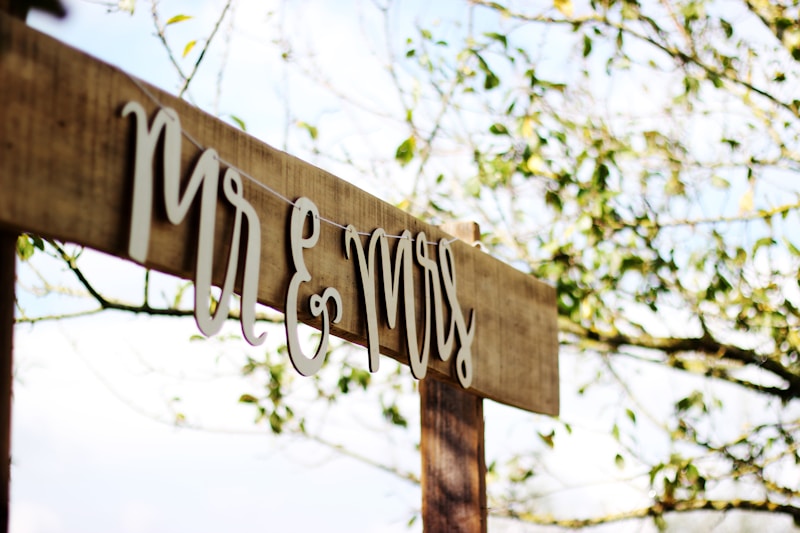Sustainable Practices in Wedding Dress Production: A Comprehensive Guide
Sustainable Practices in Wedding Dress Production: A Comprehensive Guide
Embracing Sustainability in Wedding Dress Production
As the world becomes increasingly aware of environmental issues, the wedding industry is not lagging behind. Sustainable practices in wedding dress production are becoming essential for many brides who want to make eco-friendly choices on their special day. This article explores various sustainable practices, the importance of ethical production, and the impact of these choices on consumers and the environment.
Understanding Sustainable Practices
Sustainable practices refer to methods of production that do not harm the environment or deplete natural resources. In the context of wedding dress production, this includes minimizing waste, using eco-friendly materials, and ensuring fair labor practices.
Why Sustainability Matters in Wedding Dress Production
Weddings can have a significant ecological footprint due to the materials used and the waste generated. The average wedding typically produces over 400 pounds of waste, with wedding dresses contributing a considerable part. By opting for sustainable practices, the wedding industry can reduce its negative impact on the planet.

Key Sustainable Practices in Wedding Dress Production
Here are some essential sustainable practices that designers and brands can adopt:
- Use of Eco-Friendly Materials: Fabrics made from organic cotton, hemp, and bamboo are excellent alternatives to traditional materials. These fabrics usually require less water and are grown without harmful pesticides.
- Zero-Waste Design: This approach focuses on minimizing fabric waste by carefully planning each piece of the dress. Designers aim to use every inch of fabric and create beautiful dresses that do not generate unnecessary waste.
- Upcycling and Vintage Dresses: Opting for second-hand or vintage dresses not only gives a unique touch to the wedding but also supports sustainable practices. Upcycling old dresses into new designs is a growing trend among innovative designers.
- Local Production: By producing dresses locally, designers can reduce carbon footprints associated with transportation and support local economies.
- Ethical Labor Practices: Ensuring fair wages and working conditions for workers involved in the production process is crucial for sustainability. Ethical brands prioritize transparency in their supply chains.
The Benefits of Choosing Sustainable Wedding Dresses
Choosing a sustainable wedding dress holds multiple benefits:
| Benefit | Description |
| Environmental Impact | Reduced waste and lower carbon footprint contribute to a greener planet. |
| Uniqueness | Sustainable brands often provide unique, custom-made dresses that can reflect the bride's personality. |
| Supporting Fair Trade | Promoting ethical labor practices contributes to better working conditions for garment workers. |
| Durability | Eco-friendly materials often result in more durable dresses that can be worn multiple times. |
Consumer Awareness and the Shift Towards Sustainability
Consumers today are increasingly aware of their choices' impact and are seeking sustainable options. This shift is evident in the growing demand for transparent brands that prioritize sustainability. According to recent studies, over 70% of millennials prefer to purchase from eco-friendly brands.
Challenges in Sustainable Wedding Dress Production
Despite the benefits, there are challenges faced by the industry in adopting sustainable practices:
- Higher Costs: The use of eco-friendly materials and ethical production practices can increase costs for both producers and consumers.
- Lack of Awareness: Many consumers are still unaware of the importance of sustainability in wedding dress production.
- Limited Availability: Sustainable wedding dresses can be harder to find compared to conventional dresses.
Overcoming Challenges
To overcome these challenges, education is crucial. Brands can invest in marketing that highlights the importance of sustainable practices and how they contribute to a healthier planet. Additionally, partnerships with eco-conscious influencers can help spread the word and promote awareness.
Real Examples of Sustainable Wedding Dress Brands
Today, several brands have taken significant steps toward sustainability in wedding dress production:
- Reformation: Known for its trendy styles and commitment to sustainable practices, this brand uses eco-friendly materials and pays attention to waste reduction.
- Grace Loves Lace: This Australian brand focuses on creating stunning lace dresses using sustainable nylon, ensuring minimal environmental impact.
- BHLDN: A subsidiary of Anthropologie, BHLDN offers vintage-inspired dresses made from eco-friendly materials, allowing brides to choose sustainable options without sacrificing style.
Tips for Brides Choosing Sustainable Wedding Dresses
If you're a bride-to-be looking for a sustainable wedding dress, consider the following:
- Do Your Research: Look for brands that prioritize sustainability in their production process.
- Ask Questions: Don't hesitate to ask designers about the materials they use and their production methods.
- Consider Second-Hand Options: Check thrift shops or online marketplaces for pre-loved wedding dresses.
- Rent a Wedding Dress: Renting is an excellent way to wear a stunning dress without contributing to waste.
Conclusion
As sustainability becomes more critical in the wedding industry, embracing sustainable practices in wedding dress production offers a pathway to eco-friendly choices. By prioritizing environmentally friendly materials and ethical labor practices, the wedding industry can significantly reduce its ecological footprint. Brides, as conscious consumers, play a pivotal role in this shift. Choosing sustainable wedding dresses not only beautifies their special day but also contributes to a healthier planet. With more brands stepping up to meet this demand, the future of wedding dress production looks promising.
Final Note: Always remember to research and inquire about a brand's sustainability practices to make informed decisions. Sustainable wedding dresses are not only a trend but a necessary shift towards ecological responsibility.
